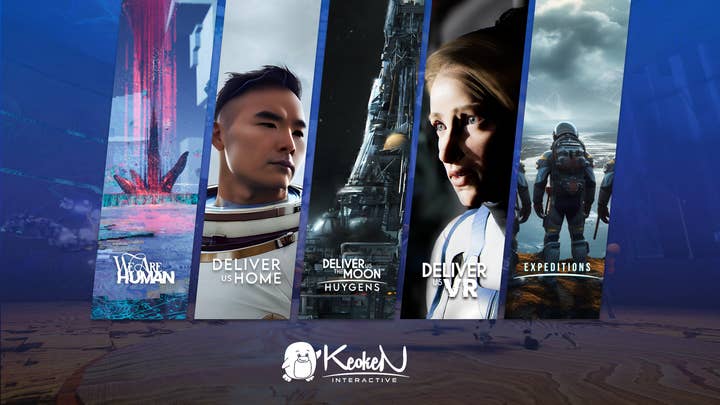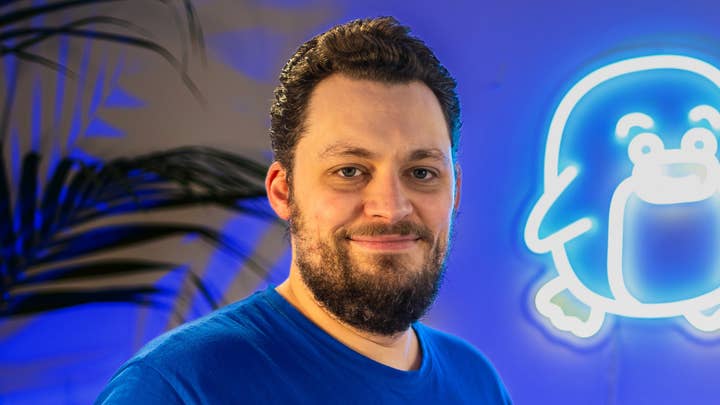Keoken Interactive: The way games are made and funded is "failing"
Co-founder Koen Deetman on the difficulties devs face in finding funding, and the Deliver Us Mars studio's last resort efforts to land a deal
Sign up for the GI Daily here to get the biggest news straight to your inbox
It's been well established by now that things are tough in the games industry at the moment. Rather than future growth, many business leaders are focused on ensuring their business simply survives through 2024, with the ongoing wave of mass layoffs and closures a sign of how many are struggling.
For developers, that survival often relies on securing funding but, as investors have already told us, the bar for success when pitching has been raised much higher. Studios around the world are having trouble landing the capital they need to continue their current projects – and for some, including Deliver Us The Moon developer Keoken Interactive, time is running out.
Co-founder Koen Deetman tells GamesIndustry.biz that his studio has made an estimated 200 pitches for five games in the last two years, and none have resulted in a deal. The company has pitched for funding on both high and low budget projects, as well as publishing deals, and has gauged interest in acquisitions for both its IP and the studio itself.
In addition to expanding on its Deliver Us series, Keoken is trying to get new IP We Are Human off the ground, but this too has struggled. Realising the game isn't the right fit for certain publishers, it has adapted its prototypes but these efforts have been in vain.
"We understand some games don’t get signed or shouldn’t be made," Deetman tells us. "But to craft, adapt, and re-pitch five different games with more than 40 publishers and continuously be rejected because it’s too unique, it’s not unique enough, the budget is too high, the budget is too low, it’s too commercial, it’s not commercial enough – you start to wonder if it’s really just us that have to look in the mirror again, or that different issues are at play here."
"The model of how games were made is failing... Combined with a post-COVID correction, recession, inflation, and layoffs, it causes a tremendous downward spiral of unintuitive pessimism"
He continues: "The model of how games were made is failing, and it desperately needs a more efficient and durable way of how we create these experiences. Combined with a post-COVID correction, signs of recession and inflation, the resulting massive wave of layoffs affecting most companies, it causes a tremendous downward spiral of unintuitive pessimism.
"People are worried about their jobs, and because of that, decide to save money for the company rather than spending it in order to improve their personal chances of survival. This results in an even more locked-up market."
Keoken has tried to balance things out by diversifying its revenue streams. It has negotiated for multiple work-for-hire contracts, and attempted to gain some co-development work, but none of this has born fruit. It even developed and published eight maps in Unreal Engine for Fortnite, but these have failed to generate much in the way of income. Management has even had to scale the company down from 45 people to 20 , while Koen and his fellow co-founder Paul Deetman have gone months without salary. But this still hasn't been enough.
"Game development is hard and very expensive," Koen Deetman explains. "When there is quite some money required to make a game, it’s understandable that mitigating risks is important, or that investing parties at least should have a way back to their money. However, this model seems to be very hard to make profitable for a developer, as I think most (good) games take a long time to recoup (if at all), meaning developers are locked out of a large portion of their potential earnings.
"This sends developers into a neverending cycle of finding connecting projects or deals to survive as a studio at all. This causes all sorts of problems, as we are running companies and bear responsibilities for people’s livelihoods. Something Paul and I have always recognised from the beginning. Having to let go of them is the worst and last thing you want to do.
"Game development needs to become far more durable and efficient; I think studios that have proven track records should be encouraged and helped to become more sustainable businesses without the need to make unnecessary decisions and constantly think about their immediate survival."

Keoken Interactive has proven its development chops in the past; Deliver Us The Moon and its sequel were received well by critics, and while Deetman doesn't share specific sales figures, he says the first title has been played by millions of people and continues selling to this day. Meanwhile, Deliver Us Mars followed a similar 'sleeper hit' cadence to the original but at a much quicker pace. Deetman observes that had Koeken been the sole benefactor from these games, the studio would "probably be quite steady and healthier financially," but the nature of the games' publishing deals means this is not the case.
As a result, Keoken is relying on what Koen Deetman refers to as its "last resort"; ahead of GDC, the company is publishing a video in which Koen and Paul present the prototypes for all five of its games, calling on the community to help raise awareness before they spend the week in San Francisco trying to land a deal.
"Game development needs to become far more durable and efficient"
Koen says if they are unsuccessful, the studio will scale down to zero, management will help former team members find new roles, and they would need to wait for a better time to revive the company. Keoken is far from alone in this – Saltsea Chronicles creator Die Gute Fabrik and Australian developer Torus Games have both been compelled to halt production and put their businesses on hiatus.
"I think this would be an extremely unnecessary waste when you have a team with over 15 years of experience working together. Especially since the industry keeps breaking revenue records and keeps gaining more players," Koen adds.
Despite the dire straits Keoken and so many other studios face, Deetman remains optimistic overall for the games industry, providing it can endure these challenging times.
"The industry is changing and we’re in a rough patch," he says. "Probably one we have been underestimating in its severity. However, it doesn’t mean the end. If you look at what developers can create and how rich our industry has become with the sheer diversity of games you can play daily, we are looking towards a super bright future of creatives making massively interesting game experiences.
"Keoken aims to be among those creators... because if there is anything we love to do, it’s making games."
Sign up for the GI Daily here to get the biggest news straight to your inbox

